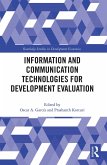This study examines the relationship between organizational performance, advanced manufacturing technologies and workforce development activities. In response to domestic and international competitive pressures, manufacturers are making increasing expenditures in both labor and technology. Both corporate and government surveys report that billions of dollars a year are spent for worker training and new technology by U.S. manufacturers. Despite these expenditures, little empirical evidence exists about the relationship between worker development activities and advanced technologies or the organizational outcomes from their combined use. In this study, multiple workforce development activities and advanced technology were defined and compared to several types of organizational performance at a variety of manufacturing plants in the Midwest. Human resource managers completed surveys that assessed areas of worker development, technology, environment and technology-driven workplace needs. Results indicate modest support for the relationship between technology, workforce development and organizational performance. Strong support, however, was found for the relationship between relational and skill needs due to changes in technology and the plant emphasis on process and individual worker development. This suggest that managerial perceptions regarding workplace changes from technology may be amore important factor than the technology itself in determining the type of workforce development activities provided. In addition, findings supported the use of multiple workforce development activities.
Bitte wählen Sie Ihr Anliegen aus.
Rechnungen
Retourenschein anfordern
Bestellstatus
Storno









